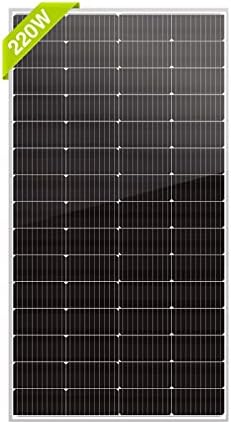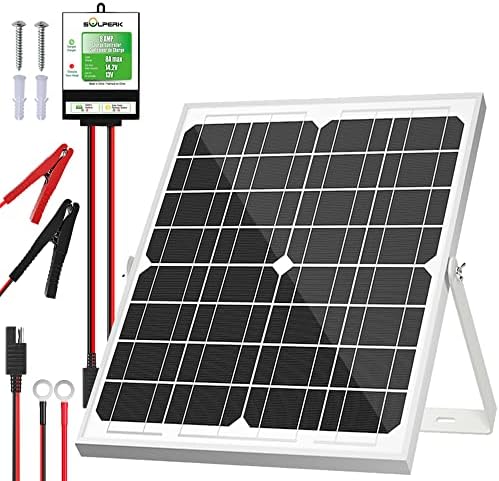# The Economics of Solar Panels: Is It Worth the Investment?
When I first decided to go the solar route, the sun poured over my humble cabin like a never-ending buffet of golden energy. I had always dreamed of reducing my dependence on the grid, and the promise of harnessing the sun seemed too good to resist. Little did I know, the journey into solar energy would be as illuminating as the rays themselves. Now, as I sit under my solar-powered string lights in the evening, I can’t help but wonder—is it truly worth the investment?
Let’s break it down: the economics of solar panels and whether they merit the upfront costs. From installation to long-term savings, we’ll delve into the nitty-gritty details that can help you make informed decisions about solar energy.
## Understanding the Initial Investment
First, let’s talk numbers. The cost of solar panels has decreased dramatically over the last decade. As of now, homeowners can expect to pay anywhere from $15,000 to $30,000 for a typical solar energy system, depending on factors like:
– Size of the system
– Type of panels used
– Installation fees
– Local incentives and rebates
While that may seem hefty at first glance, consider how it stacks up against long-term savings and energy independence. Plus, many states offer financial incentives, such as tax credits and rebates, which can significantly reduce your initial investment.
### Tax Credits & Incentives
One of the most appealing aspects of solar panels is the federal solar tax credit. This program allows you to deduct 26% of your solar installation costs from your federal taxes. While this percentage is set to decline in the coming years, it still offers an attractive incentive for homeowners. Additionally, states and local governments often throw in their own incentives, making solar more affordable.
## Calculating Savings Over Time
When grappling with the question of whether solar is worth it, consider your long-term savings. On average, homeowners save between $10,000 and $30,000 on their utility bills over the lifespan of a solar system, which typically ranges from 25 to 30 years. Here’s a simple breakdown:
1. **Monthly Savings**: With solar panels, your energy bills can plunge significantly, or even disappear entirely, depending on your energy consumption and location. Many homeowners report savings upwards of 50% on their monthly energy bills.
2. **Increased Home Value**: Homes with solar panels are generally more attractive to buyers. According to some studies, solar panels can increase your home’s value by an average of $15,000.
3. **Energy Independence**: Your monthly utility payments may be an endless cycle of increases, but solar panels allow you to generate your electricity. In areas plagued with power outages or rising electricity costs, going solar means peace of mind.
### Cost-Benefit Analysis: Is It Worth It?
To help you assess whether solar panels are worth the investment for your specific situation, we can use a cost-benefit analysis.
1. **Initial Investment**: Let’s assume a system costs $20,000 after federal tax credits.
2. **Monthly Savings**: If you save $150 per month on electricity bills, that’s $1,800 annually.
3. **Payback Period**: Divide your investment by your annual savings. In this case, $20,000 / $1,800 = roughly 11 years to recoup your investment.
4. **Long-term Gains**: After the payback period, the remaining years of savings generate serious returns. If your solar system lasts 25 years, that means you could see around $30,000 in savings after you pay off the initial costs.
## Environmental Impact and the Bigger Picture
Apart from the financial benefits, let’s not overlook the environmental impact of switching to solar energy. Using solar panels significantly reduces your carbon footprint, which is a favorable factor in today’s climate-conscious society. Here are some points to consider:
– **Reduction of Greenhouse Gases**: Solar power drastically cuts down the need for fossil fuels and reduces greenhouse gas emissions. In a world grappling with climate change, using renewable energy can make a significant difference.
– **Sustainable Job Creation**: The solar industry has seen exponential growth, creating new jobs and economic opportunities in the field of renewable energy.
## Pro Tips for Going Solar
If you’re feeling inspired to explore the world of solar energy, here are some pro tips to maximize the benefit of your investment:
### 1. Evaluate Your Energy Consumption
Before diving in, track your energy usage for at least a month. Understanding how much energy you consume will help you determine the size of the solar system you need.
### 2. Shop Around
Don’t settle for the first quote you receive. Obtain estimates from multiple companies and understand what each includes in their services. Look for professional reviews and verify their credibility.
### 3. Research Financing Options
Many homeowners don’t realize there are various financing options for going solar, such as leasing, Power Purchase Agreements (PPAs), or even community solar programs. Each option has different benefits and drawbacks.
### 4. Keep Maintenance in Mind
Solar panels are generally low-maintenance, but regular cleaning and occasional inspections are essential to ensure optimal functioning. Consider setting a schedule for maintenance rather than waiting for the system to signal a problem.
### 5. Stay Informed About Local Laws
Different states have different regulations regarding solar energy. It’s crucial to stay updated on laws, permits, and net metering policies in your area.
## Common Misconceptions About Solar Panels
### Solar Panels Are Too Expensive
As detailed earlier, while the upfront cost may be daunting, the long-term savings and incentives make solar energy achievable for many.
### Solar Power Doesn’t Work in Cloudy Areas
Surprisingly, solar panels can still generate power on cloudy days. In fact, some studies show solar systems in northern states perform almost as well as those in sunnier locales!
### Installation is Complicated and Invasive
Professional installers typically complete installations in a matter of days, and the process is not as invasive as you might think.
## Conclusion
So, is investing in solar panels worth it? The short answer is a resounding yes for many households. Not only does a solar energy system offer significant financial benefits over time, but it’s also a meaningful step toward a more sustainable future. The advantages—ranging from reduced energy costs to increased home value—often outweigh the initial costs involved in installation.
As you stand at the crossroads of energy independence and environmental consciousness, remember that the sun has a lot to offer.
**Make sure to do your research**, evaluate your options, and embark on an enlightening journey towards sustainable energy. Harness the sun, treasure your savings, and bask in the glow of your investment!



